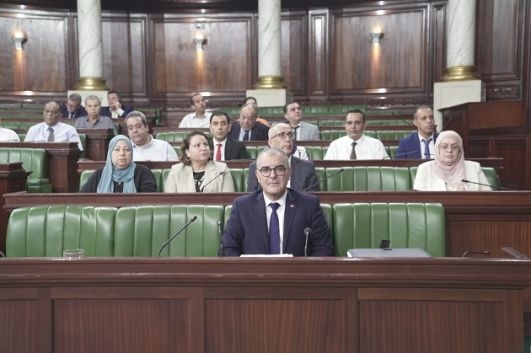During a plenary session held this Tuesday, July 22 at the Assembly of People’s Representatives, the Tunisian Minister of Economy and Planning, Samir Abdelhafidh, defended the sovereign position of Tunisia in his relations with donors, while emphasizing the need to straighten the public transport sector, in particular rail.
The session ended with the adoption of a bill relating to a loan agreement intended to finance a project to develop rail lines for the transport of phosphate. This project is considered to be strategic in the revival of the Compagnie des Phosphates de Gafsa (CPG) and more broadly of the national economy, strongly dependent on this resource.
Reacting to the interventions of certain deputies worried about the external financial dependencies, Samir Abdelhafidh said that “Tunisia treats as equals with all creditors, without any form of distinction or submission”. He assured that the country is able to comply with its international financial commitments and reimburse its debts.
This message comes in a context where the question of economic sovereignty is at the heart of the public debate, in particular with the negotiations suspended with the International Monetary Fund (IMF) and the progressive opening towards new financial partners such as China, Russia or the Gulf countries.
The Minister also seized the opportunity to approach the state of public transport in Tunisia, including rail networks and buses. He recognized the current shortcomings, while highlighting “certain recent achievements”, such as the acquisition of new buses and the progress of the rapid rail network project (RFR) in the Grand Tunis.








